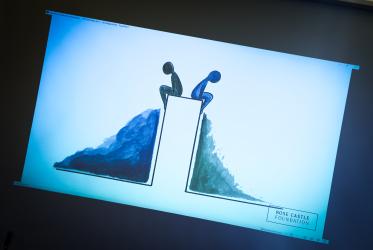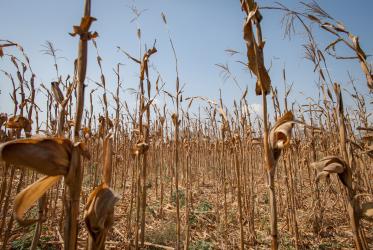On 5 June we celebrate World Environment Day. The day reminds us of various international conferences organized by the United Nations on the environment, starting in 1972 in Stockholm, Sweden, with the Conference on Human Environment, followed by the Conference on Environment and Development, held in Rio in 1992, and in 2012 also in Rio on Sustainable Development.
Beyond the international conferences, environmental issues have become more relevant for everyday life as we realize how the environment has been destroyed or is at risk. The increase in traffic and industries has, in many cities, increased air and water pollution affecting health. Natural meteorological phenomena like floods and droughts have become more frequent and strong because of climate change. Industrial agriculture and deforestation have inflicted an important loss on biodiversity.
Churches have for many decades expressed concern for the environment, as when in 1989 the Ecumenical Patriarch established on 1 September, the beginning of the liturgical year in the Orthodox tradition, the Day for the Protection of the Environment.
What does the environment have to do with the pilgrimage of justice and peace? In my view, a pilgrimage is an expression of what we are as human beings: people on the way, from birth to death. A pilgrimage is also a spiritual practice for Christians, Jews, Muslims, Hindus, Buddhists and other faith traditions.
When we walk as pilgrims, we cannot carry heavy luggage. We carry what is essential in our backpack, after hours of walking we enjoy a simple meal, under the sun water tastes like the most delicious drink we may have. We look at the environment in a new way. We discover colours, scents. We have a different relation to others as well.
In many countries, especially in Europe and in Africa, people have joined a pilgrimage of climate justice walking towards the UN Conference on Climate in Paris in December (COP21). Christians have joined other faiths, civil society organizations to walk together looking for a fair, ambitious and binding treaty coming out from the climate negotiations as well as committing themselves to live more simply, in a more eco-friendly way, caring for God's creation.







